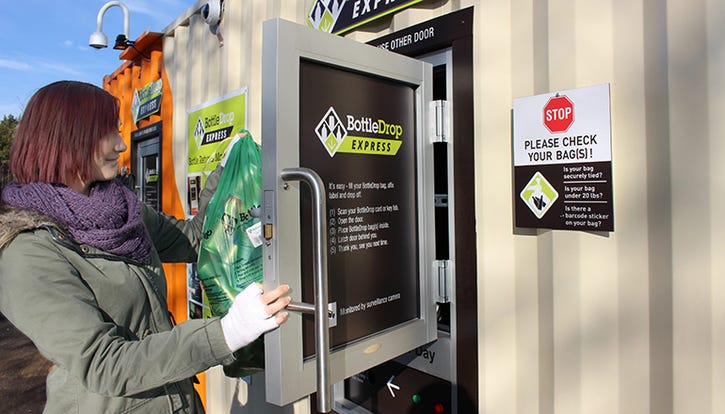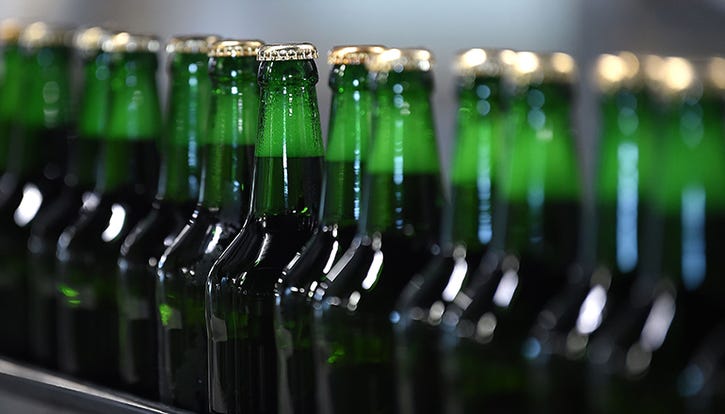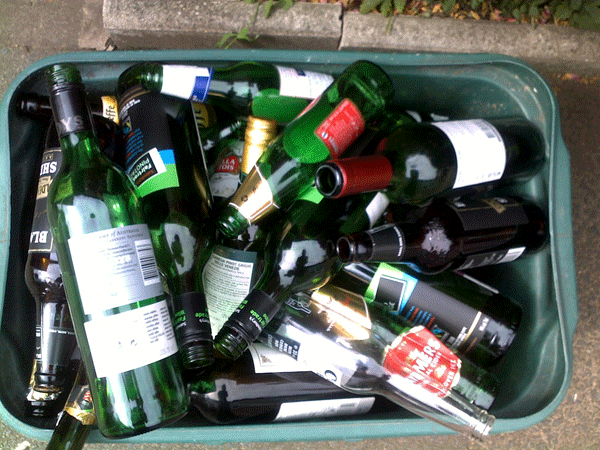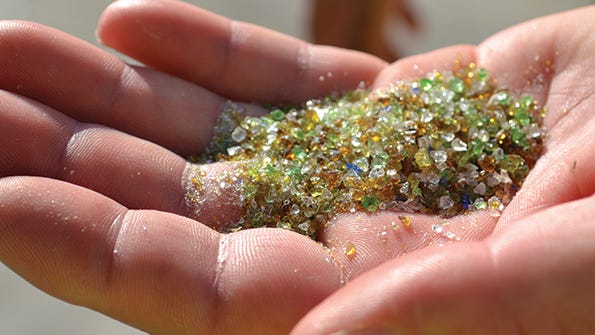Glass Recyclers Struggle to "Feed" Beverage, Food Packaging Manufacturers
A look at how glass recycling has taken some knocks through the coronavirus pandemic.

Demand for food and beverage products has soared through the COVID-19 crisis, and the Cybersecurity & Infrastructure Security Agency (CISA), a part of Homeland Security, has deemed manufacturing of these products, as well as their packaging, as essential operations. Despite this designation, and despite that glass beverage and food containers are made of about 35 percent post-consumer content, glass recycling has taken some knocks through the pandemic. Recovered glass has been hard to come by as some operations slow or stop altogether.
The reasons for the disruption are multifold. Among them, while CISA designates post-consumer glass collection as essential, it provides no clear language ranking the importance of processing this material.
Some waste companies are making their own decisions to stop or reduce recycling. Waste Management, for example, is one of the larger players that, about two weeks ago, suspended operations at some of its materials recovery facilities (MRFs).
Further, eight of the 10 states with bottle redemption programs have suspended enforcement against retailers that do not participate in the programs through the pandemic. They include Connecticut, Iowa, Maine, Massachusetts, Michigan, New York, Oregon and Vermont. California and Hawaii have not announced decisions.

“Every jurisdiction is different, and we do not know exactly what is happening in each state. But we can see from the overall supply going down that something is amiss, whether retailers are not redeeming, or people are choosing not to recycle or some combination of occurrences that is affecting supply,” says Scott DeFife, president of the Glass Packaging Institute (GPI), a trade association that represents glass container manufacturers.
“Our first ask is that states continue recycling glass and understand it’s an essential part of the supply chain,” he says.
For now, GPI is especially focused on the bottle redemption states, as that’s where much of the clean, sorted glass comes from. This week, GPI will reach out to every state with bottle redemption centers with the message that recycling these containers is essential.
And the trade association is thinking of ways retailers can continue operations while minimizing person-to-person contact. Some states already have systems designed to do so.
“Oregon has a system of independent bottle redemption centers. So, consumers don’t necessarily have to go to retailers,” says DeFife. “Additionally, it’s an automated system, so person-to-person contact is limited, and it does not contribute to traffic in and out of grocery stores.”
“Michigan is among states that use reverse vending machines [an automated way to collect, sort and handle returns]. And Maine is a state that uses the CLYNK bagging system at some locations [where people bring in their containers already bagged]. So, again, there is no need for person-to-person contact,” he adds.

The manufacturing process is fully automated other than when glass goes through the initial sortation, but that step involves “minimal touch,” and the industry is adhering to guidelines provided by the Centers for Disease Control and World Health Organization to protect workers, according to Jim Nordmeyer, vice president of global sustainability for O-I Glass. O-I manufactures glass beverage containers and owns and operates glass recycling plants around the world.
DeFife is hopeful that more states will use this moment in time to make adaptations on the collection end, whether through more automation or by expanding drop-off programs.
Many waste and recycling haulers have suspended or drastically scaled back their commercial collections. Kansas City, Mo.-based Ripple Glass is one example of a company that has suspended commercial collections. But the company continues to operate glass drop-off collection programs in nine surrounding states and is faring well, with more than 80 percent of its glass coming from these sites, according to Lydia Gibson, director of sourcing at Ripple Glass.
Northern Virginia, where GPI is based, has been running a glass drop-off system.
But dynamics can change fast; just Monday, the day DeFife told Waste360 that the bins have been full and material is getting processed, Fairfax County (one of several Northern Virginia jurisdictions) announced it is suspending this service.
Waste Management has stated it is temporarily closing some MRF public access drop-offs and transfer station public access drop-offs for safety purposes.

National glass processor Strategic Materials has seen a 30- to 50-percent reduction in glass recovery in states where it receives redemption or bottle bill glass, which has curtailed several of its operations, says Laura Hennemann, vice president of marketing and communications for Strategic Materials.
“We’ve also seen a decrease in supply from casinos, bars and restaurants and sporting events. Therefore, bottle bill/deposit glass, drop-off sites and curbside-collected glass are even more critical today in order to feed the glass container industry,” she says.
Some regions are harder hit than others; New York has had as much as an 80 percent drop in recycled glass in the past month or two due to huge spikes in COVID-19 cases that drove a sharp reduction in sales and consumption as well as suspension of some pickups because of staffing shortages and efforts to protect workers.
O-I has made substantial adjustments in its operations to keep glass moving. On the West Coast, it has four facilities and is reallocating available supply across those facilities. It’s beginning to work with competitors in a similar way.
“We have engaged with our fellow glass producers around the globe to see how we can use what material is available to best serve the market. If one firm has more than they can use, they allocate or sell some of that to a competitor to keep the supply chain running,” says Nordmeyer.

In some cases, the manufacturer has had to ask other parts of the supply chain to produce more virgin materials.
“That means mining more sand and limestone, which we are trying to avoid whenever we can,” says Nordmeyer.
Like some other container manufacturers, O-I has configured its equipment to work with post-consumer glass to reduce its dependency on virgin materials while keeping the supply chain going.
“If recycling is interrupted, then a key ingredient in raw materials is removed from that chain,” says Randy Burns, vice president of government affairs at O-I Glass.
O-I and others in its business are beginning to talk to state legislators, waste haulers and recycling processors to try and get the MRFs that have shuttered in the face of COVID-19 reopened so there is supply to work with.
“All these disruptions are happening so quickly. One of the other early things we are doing is approaching policymakers to put them on notice that there are critical infrastructure issues that to be addressed in future stimulus support packages. And we are talking to media to get out the message that it is extremely important to understand that recycling cannot be an afterthought,” says Burns.
About the Author
You May Also Like




.png?width=300&auto=webp&quality=80&disable=upscale)